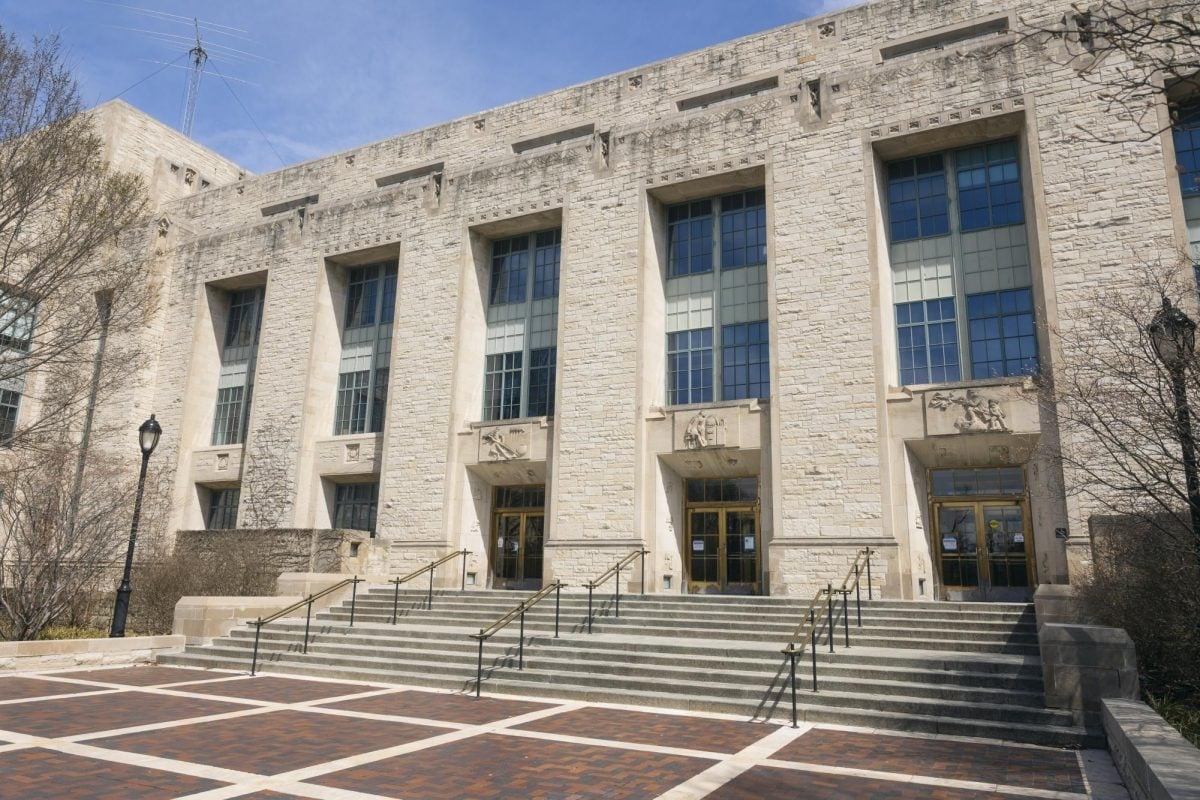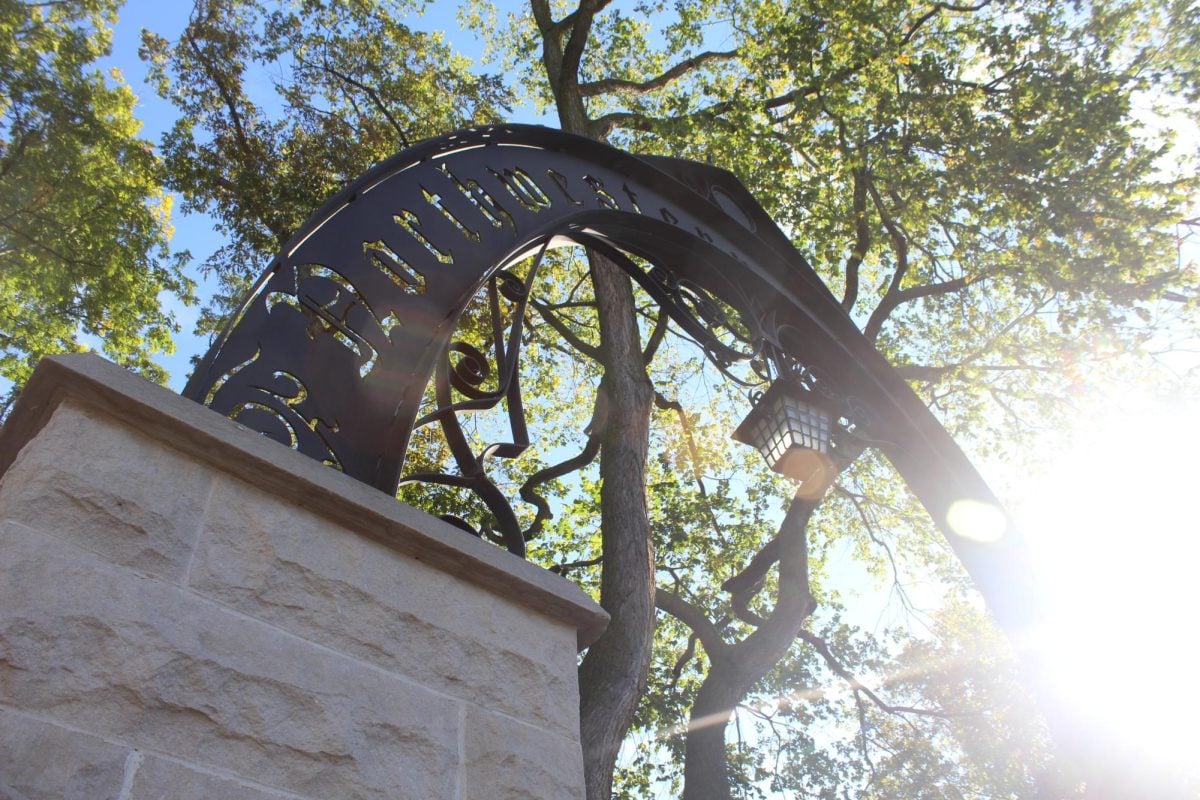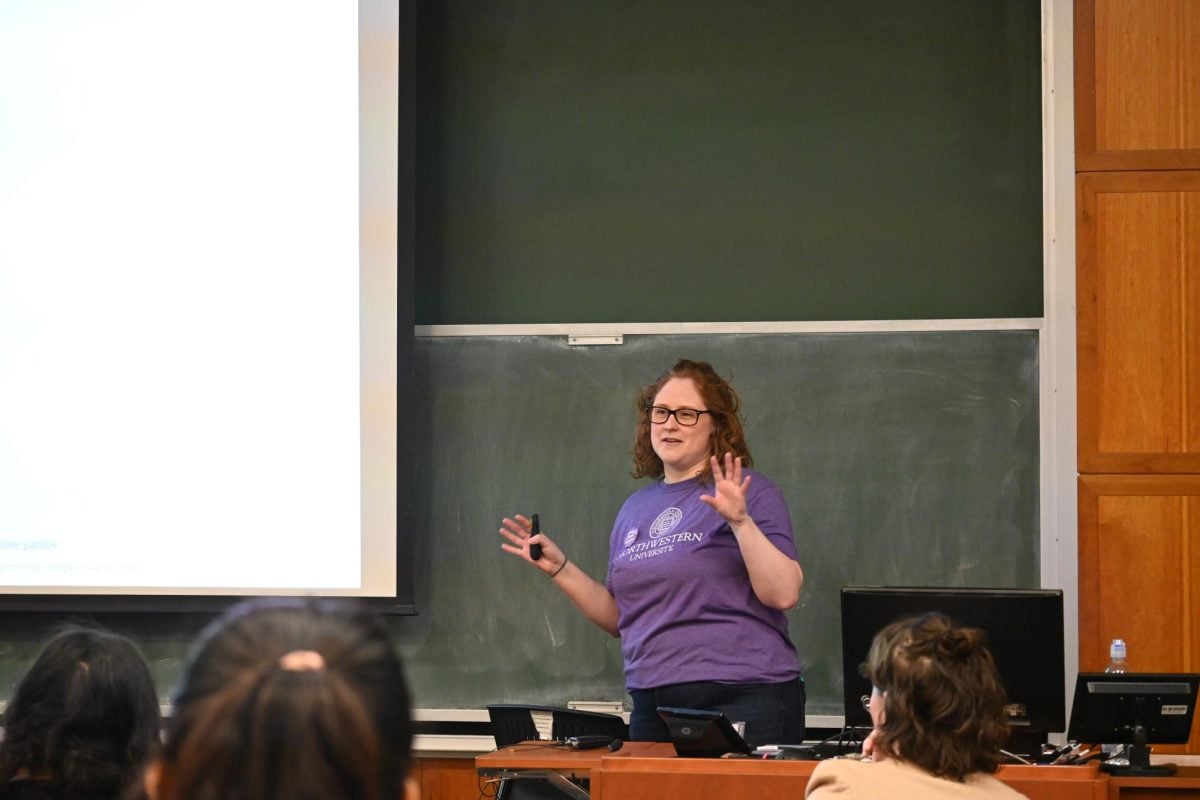A local violin-maker is accusing Northwestern professors and other local businesses of participating in a kickback scheme, an argument he has been making for years without legal success.
The violin-maker, who has been convicted of commercial defamation for similar accusations, said he believes professors are recommending students purchase instruments from rival violin dealers in exchange for commissions.
Five violin students in the Bienen School of Music, including freshmen and seniors, all said they were unaware of any scheme, partly because none had purchased an instrument since arriving on campus.
Several NU professors and others have accused their accuser of harassment, libel and hypocrisy.
Fritz Reuter is a polarizing figure, to say the least.
The website for Fritz Reuter & Sons, Inc. espouses passion for the music, craftsmanship and integrity of his instruments. It also mentions Ponzi schemes and accuses local businesses of being part of a conspiratorial network.
Reuter worries about what he says are increasingly unfair business practices in the instrument industry. Kickbacks, price gouging and bribes are all part of a scheme by respected professors and music teachers to scam students into paying higher prices, he said.
The violin-maker filed a complaint Aug. 21 with Illinois Attorney General Lisa Madigan’s office alleging a kickback scheme perpetuated by local instrument sellers and professors in Bienen. The complaint, now closed, called for an investigation of alleged deceptive business practices.
He has called for the same investigation many times in the past, a spokesman for Madigan’s office said.
“Mr. Reuter’s complaint was basically a duplicate of a complaint that he’s filed several times with the Attorney General’s office dating back to the mid-’90s,” said Scott Mulford, the deputy press secretary of the Attorney General’s office. “We have informed him several times that this file is closed and that he needs to seek other avenues if he feels there is a problem in need of redress.”
Reuter alluded to a “long-going battle,” citing multiple meetings with NU faculty and legal counsel. He claimed many professors have agreed that they have received money for referring their freshman students to other instrument sellers in return for commission.
Two married NU music professors, Almita and Roland Vamos, are frequent subjects of Reuter’s accusations, the Vamos’ said.
“Mr. and Mrs. Vamos are making a fortune approving their students’ instruments,” Reuter said.
Almita Vamos approached the subject of Reuter’s accusations with noticeable frustration. She says she has “another name” for Reuter which is not appropriate for print. Vamos and her husband have had run-ins with Reuter for the majority of their NU careers.
“I don’t sue because it would be too costly,” Almita Vamos said.
She said she and her husband have “never taken a single penny” when offered commissions, but acknowledged they do happen among teaching professionals. She said she hopes NU takes legal action against Reuter for defamation.
“This is what I tell the students,” Almita Vamos said. “I say, ‘Go any place you want, show it to me, and I’ll tell you if I like the sound.’ But I cannot take a commission because I don’t know what it’s worth.”
She likened the role of music professors to that of art specialists who inform potential buyers of the quality and value of a piece of art.
“Those art specialists usually receive commissions,” Almita Vamos said. “The few people I know that have ever taken commissions do so because they know the value of the instrument.”
She said an early encounter with Reuter is the likely reason she has been singled out. Years ago, when the Vamos’ NU career had just begun, the professors entered Reuter’s shop out of curiosity, she said. Reuter approached the couple with a viola made by his brother.
“It was a nice instrument, but we weren’t looking to buy that day, ” Almita Vamos said.
Roland Vamos later purchased a viola from rival instrument dealer Bein & Fushi, sparking what Almita Vamos believes is a personal vendetta against the couple.
Reuter brushes off any notion of ulterior motives. He said he believes he is likely losing tens of thousands of dollars because of backhanded deals, yet in the same breath said his company is in no financial danger and his battle is over morality rather than money.
Started abroad in 1922, Reuter’s company followed his family to the U.S. in 1964. The reins have since been passed down through three generations.
In an open letter to NU, Reuter cites the legal case Sullivan’s Wholesale Drug Co. v. Faryl’s Pharmacy, Inc. as his inspiration for legal action. In the Illinois-based decision, a nursing home was forcing its inhabitants to purchase pharmaceuticals through a single pharmacy while staff retained a 15 percent kickback.
Applying the same legal argument to free market instrument sellers could prove difficult. Years of allegations by Reuter against instrument dealer Bein & Fushi led them to pursue legal action against him. In 1992, after a four-year legal battle, he was found guilty of commercial defamation.
But despite the legal setbacks, Reuter shows no signs of easing up on his one-man campaign.







